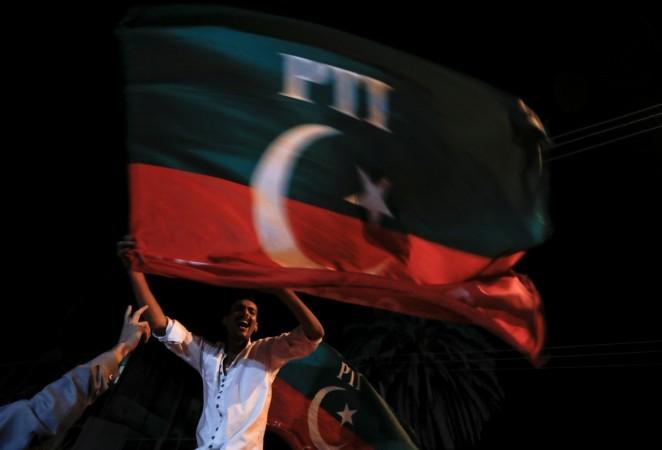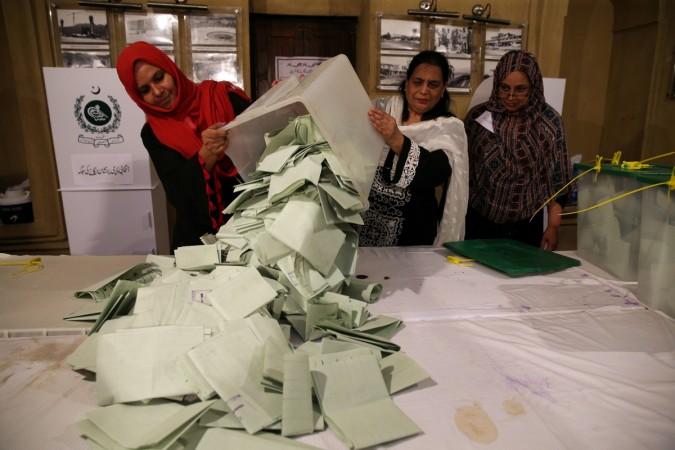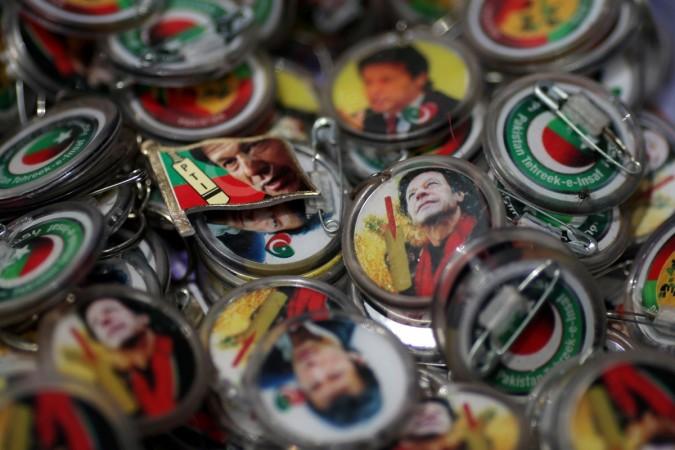
Pakistan eagerly awaits to see which party will have the chance to form a government in the nation that has been under military rule for most of its brief history as an independent state. But even amidst the anticipation to see who wins the 2018 general elections, murmurs of a possible coalition government being formed have not died down.
While the Imran Khan-led Pakistan Tehreek-e-Insaf is most favoured to win the elections, rivals led by Shehbaz Sharif of Pakistan Muslim League-Nawaz (PML-N) allege discrepancies in counting since PTI is said to have military backing. However, there is no denying that the Imran Khan-led party could see a possible victory.
While the results are yet to be announced, Imran Khan is already being hailed as the prime minister. The party has officially held back on declaring victory, but party spokesman Fawad Chaudhry tweeted "Congratulations to the nation on a new Pakistan! Prime Minister Imran Khan."

A single party would need 137 seats of the 272 seats in the National Assembly to form an independent government in the country.
Of the 48 percent votes that have been counted so far, Reuters reported that PTI is leading in 119 seats of the 272 in National Assembly. Sharif's PML(N) is second with 64 seats, while the youngest candidate, Bilawal Bhutto Zardari comes in third with 38 seats. (You can follow the live updates here)
If the leading party fails to gain the required number of seats, they would be forced to form a coalition to assume power. However, PTI has expressed its doubts about choosing to govern with one of the established parties.
Based on a report by Express, Imran Khan said that it would be tough to implement new reforms if they were to join hands with either of the other two established parties in the race.
If we have to make a coalition with either of the two main parties, then it means we can't bring about any major reforms. So, I wonder if it is worth even forming a government if you have to make an alliance with one of those two parties.

The party's stance comes as no surprise since Imran Khan is being viewed as the country's new hope. A refreshed take on governance would be tough to achieve with the same players back in the game.
This leaves PTI to consider one of the smaller parties or independent candidates to form a coalition.
The seats secured by independent candidates at the time of publishing this article is 19. With 12 seats, Muttahida Majlis-e-Amal (MMA) is the party to have the largest vote share excluding the three main players in the race (PTI, PPP and PML-N) The other two smaller parties have four seats each.
If the leading party fails to secure the required number of votes, and coalition might be the only option, it is definitely not a favoured one. Not only are the voters apprehensive about it, analysts believe it would not result in the changes the PTI expects to bring in governance.
According to a CNN report, South Asia expert Michael Kugelman states that despite Khan's promise of a "New Pakistan," the military will continue to hold a dominant position in the hierarchy of power in the nation. Kugelman said:
It remains powerful and popular, even amid allegations of election meddling, and the most likely election outcome – a weak coalition government – is the military's best-case scenario.

















